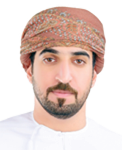

While the coronavirus pandemic continues to impose closure and slowdowns in a number of countries, while humanity is waiting for the vaccine, there is another great danger to human health that still refuses to take a leave: namely, cancer!
We all noticed in the first months of the pandemic how people around the world adhered to medical instructions, in addition to the warnings and fears of infection with the coronavirus. However, there are numbers of patients whose medical visits were postponed before their final diagnosis of cancer, or examinations were also delayed to another appointment in order to avoid and reduce the gathering of individuals, which actually allowed cancer and many cases in different societies to develop and even to escape detection, and progress probably to late stages without hindrance.
Sadly, during previous months of the pandemic, the societies around the world faced more tension and pressure with the loss of a large number of people and hence such events led to an increase in precautionary measures, ended with a sharp decrease in early and routine cancer checkups for those countries that lost thousands of lives.
Moreover, many mammography centres and other places for cancer screening have remained closed for several months and even routine colonoscopy, which must be done in hospitals, has been postponed to reduce the pressure on medical personnel and medical equipment in order to reduce the risk of infection.
Perhaps we are all aware that cancers cannot be cured unless they are discovered. Interestingly, various studies have confirmed that every four weeks of delay in cancer detection and treatment, the risk of dying from cancer increases by about 10 per cent on average. So that the risk of late examinations is greater for people who have known risk factors for cancer, such as a family history, or for example previous abnormal Pap smears, or previous results of polyps in the colon or rectum.
However, my message to everyone when it comes to cancer screening is people must balance the possibility of contracting the virus and the risk of developing cancer. And here, everyone must do everything in their power to keep up with early detection tests for cancer. For instance, if the woman is young and does not have a family history of breast cancer, she will likely wait six months for a mammogram. Whereas if a person is found to have cancer — you agree with me — there is definitely no reason to delay treatment. On other hand, if it occurs and a woman has breast cancer, it must be removed and she must go to the hospital where she can be treated safely and in the appropriate manner that her doctor sees.
There is no doubt that for some types of cancer, instead of performing surgery in advance while we are in the turmoil of a pandemic, we can treat some patients with radiation and chemotherapy first, then surgery is performed later when there is less stress on hospital facilities and staff and patients can be better protected from the virus and its transmission.
Of course, knowing a person has cancer, even when this is early and highly curable, is likely to strain a person’s ability to cope with stress, especially when the diagnosis occurs in the midst of a very stressful and already frightening pandemic. Unfortunately, this may be a sensitive and a distressing stage for the sufferer, but he/she must remember that he is a complete person experiencing something, must be patient and adaptive.
At the end, remember while you are in pain, you can create simple happiness out of the small joys, for instance through walking, reading something or talking to someone you love. And always with less, you will go a long way to relieve the stress of the day and build your reserve of optimism and immunity to help you deal with cancer, thinking back about how you adapted to things you previously thought were unimaginably difficult!
Dr Yousuf Ali al Mulla, MD, Ministry of Health, is a medical innovator and educator. For any queries regarding the content of the column he can be contacted at: dryusufalmulla@gmail.com
Oman Observer is now on the WhatsApp channel. Click here



